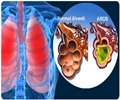Premature babies experience stress and neonatal pain, which impairs both early and later child development due to longer stay in the ICUs.

‘Developmental care programs are required in the ICUs to reduce stressful and painful experiences in premature babies’





"Moreover, the neonatal ICU environment includes other factors that impair child development, such as high levels of noise and luminosity, repetitive tactile stimuli, and maternal separation", the authors write. The sample population consisted of 100 preterm babies aged 18-36 months with differing levels of prematurity.
The aim of the study was to find out how neonatal and socio-demographic factors influence early-childhood temperament and behavior. All the infants were born in FMRP-USP's hospital and enrolled in a multidisciplinary intervention program in its neonatal ICU.
A number of tests were applied to evaluate temperament, stress and behavior, leading to scores for the relevant indicators.
Predictors of behavioural patterns in adulthood
Advertisement
According to Maria Beatriz Martins Linhares, an associate professor at FMRP-USP and principal investigator for the study, early childhood is a window of opportunity for regulation of the individual's lifelong development.
Advertisement
The self-regulation process is completed by the age of five, starting with emotional regulation up to the age of approximately 18 months and followed by behavioral regulation.
"Self-control emerges at around three or four years of age, with development of the executive attention system, which is relevant to effortful control, enhancing the potential for behavior regulation," the authors write.
Temperament changes during the course of development. With typical child development, therefore, "systems that are initially more reactive become increasingly regulated to the extent that the inhibition control systems directed toward fear and attention control become more mature", according to the authors.
Linhares sublinha que o desenvolvimento cognitivo envolve não só o crescimento físico e as habilidades - nas áreas de linguagem, locomoção, motora -, mas também os aspectos afetivos, sociais e comportamentais. "Portanto, da mesma forma que o desenvolvimento motor precisa ser acompanhado, os indicadores do comportamento e traços do temperamento também devem ser", disse Linhares.
Linhares stresses that cognitive development involves not only physical growth and language and motor skills; it also has affective, social and behavioral aspects. "Not only motor development but also behavioral indicators and temperamental traits should be monitored."
Recommendations of the study
According to the World Health Organization (WHO), Brazil has the world's tenth-highest rate of premature births.
However stressful a neonatal ICU may be for babies - considering some painful procedures which ensure weight gain and proper oxygenation for the infant (a premature baby's lungs are not yet fully formed) - they simply cannot survive without the support of the equipment and the multiprofessional team of specialists found there.
The researchers say this finding confirms the need for developmental care programs in ICUs to reduce stressful and painful experiences for newborn infants and also to enhance protective strategies during their early development.
Methodology
Mothers of these babies who met the criteria for inclusion, which included understanding the instrument used to report their infant's behavior, participated in interviews and responded to questionnaires.
Babies with grade 3 or 4 intracranial hemorrhage, limited mobility or cognitively impaired mothers were excluded. Thirty-six had bronchopulmonary dysplasia, and 63 had ROP, the most common diseases among preterm babies.
"Previous studies compared preterm and term babies, given that preterm babies are more likely to display behavioral problems. Our study advances knowledge of development in preterm babies. There are risks, but if we identify the risks, we can plan strategies for protection, prevention and intervention to improve the development of these children," said Rafaela Guilherme Monte Cassiano, a psychologist and PhD researcher in FMRP-USP's Department of Neurosciences & Behavioral Sciences and one of the authors of the study.
Source-Eurekalert









